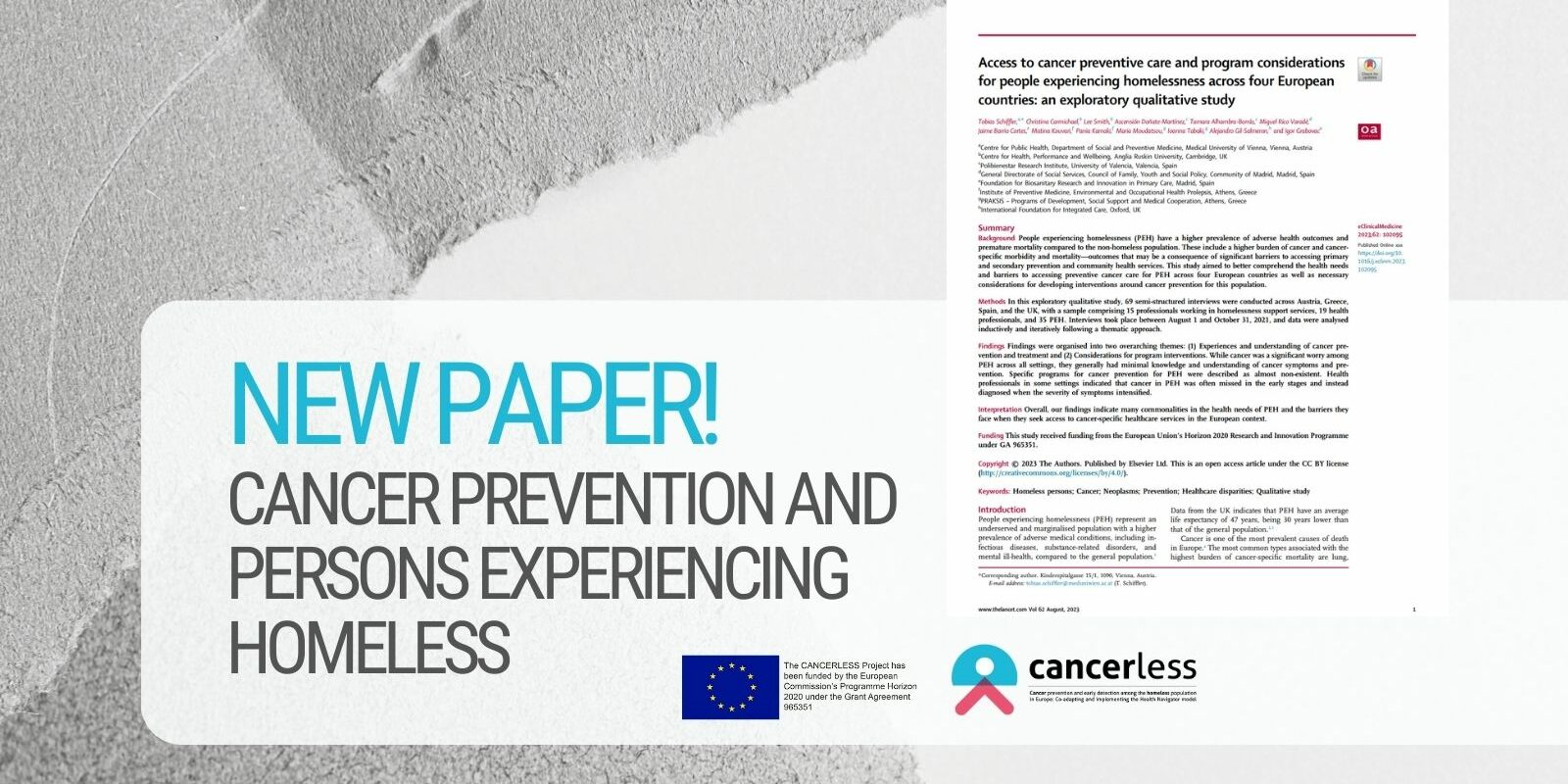Our project partners have recently published the first empirical paper in EClinicalMedicine, part of The Lancet Discovery Science. This groundbreaking study is the result of extensive research conducted across four European countries, involving 69 interviews with both PEH and professionals working in the field.
This study employed an iterative qualitative content analysis to explore two primary themes: the experiences and understanding of cancer prevention and treatment among PEH, and the considerations necessary for implementing effective cancer prevention programs for this population. Our research revealed that while PEH are aware of the negative impact of homelessness and lack of access to healthcare, their immediate needs often take precedence, making cancer prevention a lower priority.
This perspective was also echoed by some professionals, revealing a concerning discrepancy: whilst some professionals did not consider health as a priority, PEH express greater concern for their health.
The study further delved into the considerations necessary to create and implement a PEH cancer prevention program. The findings underscored the importance of building trusting relationships, focusing on long-term outcomes, and ensuring that staff are educated in trauma-sensitive work.
The approach needs to be direct, consistent, and, if possible, multilingual, advocating for a more collaborative approach, involving PEH in the discussion and decision-making process, rather than a top-down, paternalistic approach.
This collaborative and co-designing approach is the foundation of the Horizon 2020 funded CANCERLESS project and the Health Navigator Model it implements.
The full paper is available in open-access format here. We encourage everyone to delve into our project, paving the way for a more inclusive society and effective cancer prevention strategies!

